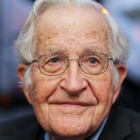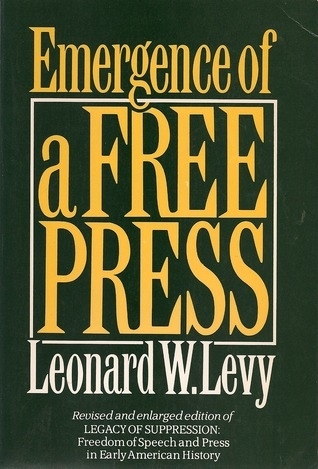
Noam Chomsky Books - 100 Recommended Picks
Noam Chomsky
There is a famous Noam Chomsky book list consisting of top 100 books Noam Chomsky ever recommended and mentioned. It is the full Noam Chomsky book list.
Noam Chomsky is a highly-regarded linguistics professor, one of the most prominent minds to live in our time.
Not only he is active in terms of his academic influence, but he is also a political activist who never stops before telling the truth.
Noam Chomsky is a genuine intellectual. He revolutionized linguistics with his non-empiricist language theory, and after that, he continued expressing his talents in the field of social and political studies.
He is an extremely well-read person, so Noam Chomsky book recommendations are valuable for those who seek to enrich their library with books on serious and timeless topics.
He is also known for his sharp ideas on society, politics, and his deeply philosophic approach to any books and discussions.
Justice and truth are the main concepts that guide Noam Chomsky. You will notice it in the Noam Chomsky book list: the pieces show various opinions on the same topic.
He is not afraid to defend the truth. Noam Chomsky has spoken a lot throughout his life defending justice and uncovering fraud or corruption schemes.
Professor Chomsky is a man that stands behind his ideas no matter what political powers are dominant at that time.
Noam Chomsky book recommendations are perfect for those looking to deeply dive into the political, linguistic, or sociological matters and observe the subject from multiple standpoints.
Noam Chomsky book list is a thoroughly curated selection of books that encourage and develop critical thinking.
So, take a glimpse to the library of Noam Chomsky - an unparalleled author and scientist.
Ver todos
0
me gusta
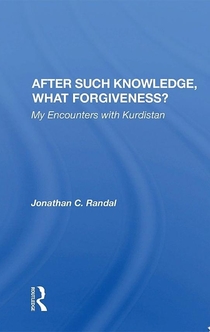
After Such Knowledge, What Forgiveness?
This book is about the Kurds and Kurdistan, discussing Kurdish nationalist aspirations, the repeated Kurdish revolts, and the rogue chromosome in Kurdish genetics causes what Indians, with their love of fancy words, would call "fissiparous tendencies."
0
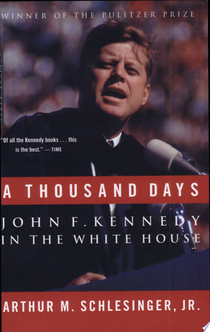
A Thousand Days
As special assistant to the president, Arthur Schlesinger witnessed firsthand the politics and personalities that influenced the now legendary Kennedy administration. Schlesinger’s close relationship with JFK, as a politician and as a friend, has resulted in this authoritative yet intimate account in which the president “walks through the pages, from first to last, alert, alive, amused and amusing” (John Kenneth Galbraith). A THOUSAND DAYS is “at once a masterly literary achievement and a work of major historical significance” (New York Times).
Ver todos
0
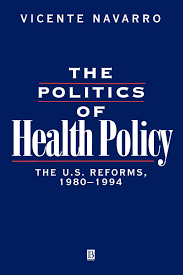
The Politics of Health Policy
This book analyzes the federal health policies followed by Reagan, Bush, and Clinton and by the Democratic-controlled Congress. The book shows the connection between the crisis of health care and the correlation of class forces in America. Addresses one of the key areas of contemporary public policy in the US, challenging complacent assumptions and demonstrating the enduring popularity of the welfare state The author was part of the Clinton team responsible for health reform
Ver todos
0
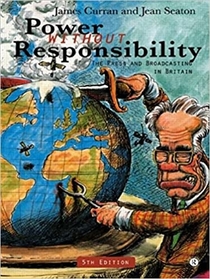
Power Without Responsibility
Power Without Responsibility is a classic introduction to the history, sociology, theory and politics of the media in Britain. It is an essential guide, both for students and teachers of media and communication studies, and for all those involved in the production and consumption of the media. The new edition has been substantially revised to bring it right up-to-date with developments in the media industry, new media technologies and changes in the political and academic debates surrounding media policy. In this new edition, the authors consider: * whether we are on the threshold of a new communications revolution * the role of global media empires * the rise of video, cable and satellite * the global information society and contradictions in media policy * the BBC and broadcasting at the end of the 1990s * the evolving relationship of the press and the Conservative party. Assessing the press and broadcasting at a time of radical change, the authors suggest a manifesto for media reform.
Ver todos
0

Accumulation and Power: Economic History of the United States
Koreas location at the very center of Northeast Asia also gives it a pivotal role in the economic integration of the region and the dynamic development of its more powerful neighbors. This book offers an appraisal of Korea as the key to the coalescence of a broad, open Northeast Asian regionalism in the 21st century.
Ver todos
0
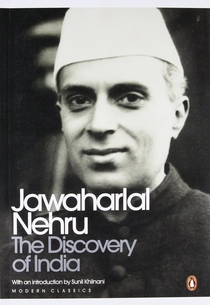
The Discovery of India
Gives an understanding of the glorious intellectual and spiritual tradition of (a) great country.' Albert EinsteinWritten over five months when Jawaharlal Nehru was imprisoned in the Ahmadnagar Fort, The Discovery of India has acquired the status of a classic since it was first published in 1946. In this work of prodigious scope and scholarship, one of the greatest figures of Indian history unfolds the panorama of the country's rich and complex past, from prehistory to the last years of British colonial rule. Analysing texts like the Vedas and the Arthashastra, and personalities like the Buddha and Mahatma Gandhi, Nehru brings alive an ancient culture that has seen the flowering of the world's great traditions of philosophy, science and art, and almost all its major religions. Nehru's brilliant intellect, deep humanity and lucid style make The Discovery of India essential reading for anyone interested in India, both its past and its present.
Ver todos
0

The Record of the Paper
In this meticulously researched study Howard Friel and Richard Falk demonstrate how the newspaper of record in the United States has consistently, over the last fifty years, misreported the facts related to the wars waged by the United States. From Vietnam in the 1960s to Nicaragua in the 1980s and Iraq today, the authors accuse the New York Times of serial distortions. They claim that such coverage now threatens not only world legal order but constitutional democracy in the United States. despite the fact that an invasion of one country by another implicates fundamental aspects of the UN Charter and international law, the New York Times editorial page never mentioned the words UN Charter or international law in any of its 70 editorials on Iraq from September 11, 2001 to March 20, 2003. The authors also show that the editorial page supported the Bush administration's WMD claims against Iraq, and that its magazine, op-ed, and news pages performed just as poorly. In conclusion the authors suggest an alternative editorial policy of strict scrutiny that incorporates the UN Charter and US Constitution in the Times coverage of the use and threat of force by the United States and the protection of civil and human rights at home and abroad.
Ver todos
0

Worlds in Collision
With this book Immanuel Velikovsky first presented the revolutionary results of his 10-year-long interdisciplinary research to the public, founded modern catastrophism - based on eyewitness reports by our ancestors - shook the doctrine of uniformity of geology as well as Darwin's theory of evolution, put our view of the history of our solar system, of the Earth and of humanity on a completely new basis - and caused an uproar that is still going on today. Worlds in Collision - written in a brilliant, easily understandable and entertaining style and full to the brim with precise information - can be considered one of the most important and most challenging books in the history of science. Not without reason was this book found open on Einstein's desk after his death. For all those who have ever wondered about the evolution of the earth, the history of mankind, traditions, religions, mythology or just the world as it is today, Worlds in Collision is an absolute MUST-READ!
Ver todos
0

The State of the World's Children 1997
Each year, The State of the World's Children closely examines a key issue affecting children. The 1997 Report focuses on the controversial and emotional, as well as complex and challenging issue of child labour. It asserts that thoughtful and comprehensive attempts at solutions must be guided by the best interests of the child and the Convention on the Rights of the Child. The Report urges an immediate end to hazardous and exploitative child labour and advocates urgent support for education so that children may acquire knowledge and skills to improve their lives.
Ver todos
0
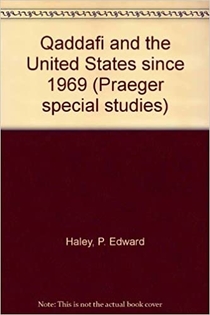
Qaddafi and the United States Since 1969
0

The Uncensored War
Vietnam was America's most divisive and unsuccessful foreign war. It was also the first to be televised and the first of the modern era fought without military censorship. From the earliest days of the Kennedy-Johnson escalation right up to the American withdrawal, and even today, the media's role in Vietnam has continued to be intensely controversial. The "Uncensored War" gives a richly detailed account of what Americans read and watched about Vietnam. Hallin draws on the complete body of the New York Times coverage from 1961 to 1965, a sample of hundreds of television reports from 1965-73, including television coverage filmed by the Defense Department in the early years of the war, and interviews with many of the journalists who reported it, to give a powerful critique of the conventional wisdom, both conservative and liberal, about the media and Vietnam. Far from being a consistent adversary of government policy in Vietnam, Hallin shows, the media were closely tied to official perspectives throughout the war, though divisions in the government itself and contradictions in its public relations policies caused every administration, at certain times, to lose its ability to "manage" the news effectively. As for television, it neither showed the "literal horror of war," nor did it play a leading role in the collapse of support: it presented a highly idealized picture of the war in the early years, and shifted toward a more critical view only after public unhappiness and elite divisions over the war were well advanced.
Ver todos
0

Web Of Deceit
In his explosive new book, Mark Curtis reveals a new picture of Britain's role in the world since 1945 and in the 'war against terrorism' by offering a comprehensive critique of the Blair government's foreign policy. Curtis argues that Britain is an 'outlaw state', often a violator of international law and ally of many repressive regimes. He reasons not only that Britain's foreign policies are generally unethical but that they are also making the world more dangerous and unequal. The Web of Deceit describes the staggering gulf that has arisen between New Labour's professed commitment to upholding ethical values and the reality of current policies. It outlines the new phase in global intervention, the immorality of British policy in Afghanistan, Kosovo, Iraq and Indonesia and support for repressive governments in Israel, Russia, Turkey and Saudi Arabia. Curtis also reveals Britain's acquiescence in the Rwanda genocide and economic policies in the World Trade Organisation that are increasing poverty and inequality around the world. Drawing on formerly secret government files, the book also shows British complicity in the slaughter of a million people in Indonesia in 1965; the depopulation of the island of Diego Garcia; the overthrow of governments in Iran and British Guiana; repressive colonial policies in Kenya, Malaya and Oman; and much more.
Ver todos
0
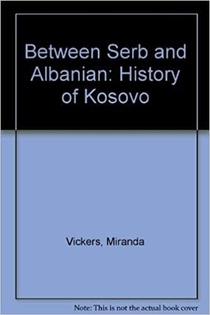
Between Serb and Albanian
The dissolution of communism and the rise of ethnic and religious conflict throughout the former Yugoslavia, which sparked the war among Bosnians, Serbs, and Croats, has captivated the attention of the Western media throughout the 1990s. But little notice has been paid to the growing ethnic and religious tensions within the Serbian province of Kosovo -- tensions that now pose a serious threat to the security of the Balkans. Nearly 90 percent of the population of Kosovo is composed of Albanian Muslims, many of whom support a growing movement -- at first peaceful, but now turning violent -- for independence from Christian Serbia.In Between Serb and Albanian, Miranda Vickers explores the roots of this conflict and tracks the recent trajectory of Serbian and Albanian relations in Kosovo. The first third of the book outlines the history of Kosovo during the medieval and Ottoman periods, when relations between the two communities were generally good. The second part examines Kosovo since 1945, when the area fell under Serbian administration in the socialist Yugoslav system. Vickers concludes by surveying the steady deterioration in Serb-Albanian relations since the disintegration of Yugoslavia in 1981. With careful detail, she reveals how a largely peaceful. politically driven campaign for the independence of Kosovo has recently turned to violence with terrorist attacks on Serb political and military institutions, on Albanians thought to be collaborating with the Serbs, and on Serbs themselves. In the process, the author provides a balanced account of the Serb and Albanian positions, while placing much of the blame for the current situation on the repressive policies of Serb dictatorSlobodan Milosevic. Vickers sees ominous portents that the conflict may soon spread to neighboring Balkan countries.This book is essential reading for all those wishing to understand the historical, social, and cultural aspects of ethnic and religious strife in Serbia, and the implications of this conflict for the current political situation in all of southeast Europe.
Ver todos
0
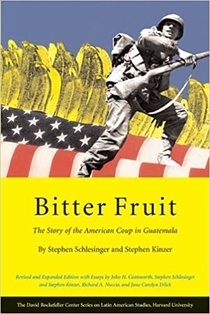
Bitter Fruit
Bitter Fruit is a comprehensive and insightful account of the CIA operation to overthrow the democratically elected government of Jacobo Arbenz of Guatemala in 1954. First published in 1982, this book has become a classic, a textbook case of the relationship between the United States and the Third World. The authors make extensive use of U.S. government documents and interviews with former CIA and other officials. It is a warning of what happens when the United States abuses its power.
Ver todos
0
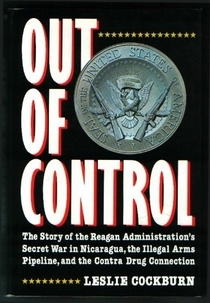
Out of Control
For the last two years, the author has been investigating the secret funding of the Contras by the White House. Here, she identifies the network of National Security Council staff (led by Colonel Oliver North), CIA operatives and ex-agents who set up this illegal support system, after the passage of the Boland Amendment in October 1984 made it illegal for the US government to give direct and indirect aid to the Contras.
Ver todos
0
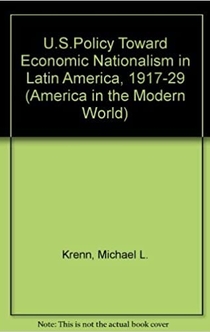
U.S. Policy Toward Economic Nationalism in Latin American, 1917-1929 (America in the Modern World): Krenn, Michael L
U.S. Policy Toward Economic Nationalism in Latin American, 1917-1929 (America in the Modern World) [Krenn, Michael L] on Amazon.com
0
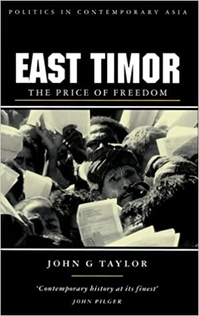
East Timor
In this updated and much expanded edition of his celebrated book, Indonesia's Forgotten War: The Hidden History of East Timor, John Taylor tells in detail the story of what happened to this island people following President Suharto's downfall in the wake of the Asian economic crisis. The new Indonesian government conceded the right of the United Nations to organize the long delayed referendum giving the East Timorese a choice between continued association with Indonesia or independence.
Ver todos
0

The Road to OPEC
On September 10, 1960, Venezuela spearheaded the formation of the Organization of Petroleum Exporting Countries (other original members included Saudi Arabia, Iran, Iraq, and Kuwait). However, in a world abundantly supplied with oil, the United States could and did ignore Venezuelan suggestions that OPEC and the consuming nations work together to control production and to increase prices. Then, in late 1973, OPEC sent shudders throughout the world economy, and an energy crisis struck with full force. Emboldened by the power of their oil cartel, Venezuelan leaders denounced the old economic relationship with the United States, nationalized U.S. oil and steel holdings, and fashioned a foreign economic policy that differed sharply from Washington's. The Road to OPEC is the story of the fiery debates among U.S. oil companies, the Department of State, and the Venezuelan government over oil policies—clashes that led Venezuela to establish OPEC and to nationalize U.S.-owned properties. In addition, this is the first study of twentieth-century Venezuelan-U.S. relations. Its focus on oil diplomacy is placed within the context of key U.S. policies toward Latin America and such programs as the Open Door, the Good Neighbor, and the Alliance for Progress. The author also provides insight into both the politics of the contemporary energy crisis and the growing split between raw-material producers and their industrial customers. The Road to OPEC is based on extensive archival research, as well as the author's successful use of the Freedom of Information Act to declassify files of such agencies as the National Security Council and the CIA.
Ver todos
0
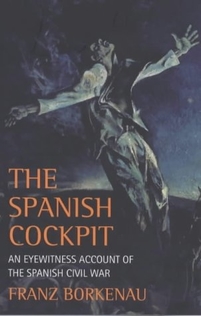
The Spanish Cockpit
First published one year after the outbreak of the Spanish Civil War, and long out of print, this eyewitness account provides an insight into the political and social conflicts that no book written today can hope to achieve. Recognised by historians as a dress rehearsal for World War II, the Spanish Civil War drew romantics from all over the world to fight for the Republican cause. It has inspired and continues to inspire novelists, artists, historians, musicians, poets, movie makers, revolutionaries. Yet few were actually there to see for themselves. Franz Borkenau, a n idealistic young Austrian wrote (in English) this on the spot account of his visits to Spain in 1936 and 1937 - it became one of the most sought after classics and is now back in print for the first time in many years.
Ver todos
0

The Age Of Terror
Momentous events have a way of connecting individuals both to history and to one another. So it was on September 11. Even before more than 4000 people died in less than two hours, there were farewell messages from the sky. In their last minutes, doomed passengers used cell phones to reach loved ones. A short time later, office workers trapped high in the burning towers called spouses, children, parents. Never had so many had the means to say good-bye. During the hours afterward, the survivors scrambled to make contact with family and friends. "Are you all right?" they asked. As the enormity of it all began to sink in, the question hanging in the air was, Were we all right? Since September 11, many have noted a humbling irony: the more time we'd spent in the old world and the better we thought we understood its organizing principles, the less ready we were for the new one. Suddenly, familiar terms and concepts were inadequate, starting with the word terrorism itself. The dictionary defines it as violence, particularly against civilians, carried out for a political purpose. September 11 certainly qualified. But American's earlier encounters with terrorism neither anticipated nor encompassed this new manifestation. Commentators instantly evoked Pearl Harbor, that other bolt-from-the-blue raid, sixty years before, as the closest thing to a precedent. But there really was none. This was something new under the sun.
Ver todos
0

Washington's War on Nicaragua
An account of U.S. policy from the Sandinista revolution through the Iran-contra scandal and beyond. Sklar shows how the White House sabotaged peace negoatiations and sustained the deadly contra war despite public opposition, with secret U.S. special forces and an auxiliary arm of dictators, drug smugglers and death squad godfathers, and illuminates an alternative policy rooted in law and democracy.
Ver todos
0

Empire of Fortune
Empire of Fortune focuses on the so-called "French and Indian War"--the bitter last-ditch struggle between the British and the French empires in the New World. Challenging traditional historians, Francis Jennings reveals in absorbing detail the political and military realities behind the myths.
Ver todos
0
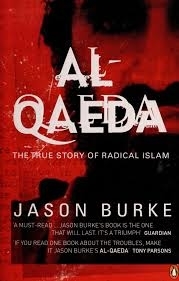
Al-Qaeda
On a hot summer's day in 1996 a plane carrying Osama bin Laden and a few friends and family landed at a runway just outside the eastern Afghan city of Jalalabad. The Saudi-born Islamic activist had little equipment, few followers and minimal local support. Yet within five years he had built an organisation that was to carry out the most shocking and devastating terrorist attack in history. 'Al-Qaeda' is now the most over-used and misunderstood term in the media. In Arabic, it is simply an abstract noun, meaning 'resource', 'network' or 'base'. In the West, it symbolises the greatest threat to global security: though its Afghan training camps have now been reduced to dust, no one believes that al-Qaeda was destroyed with them. But what is al-Qaeda? Is it a disciplined, motivated, structured terrorist organisation led by a single criminal mastermind or no more than an idea, a language in which angry young Muslim men can articulate their rage? Bin Laden's aim to provoke conflict between militant Islam and the West appears closer to fulfilment than ever. But is al-Qaeda the catalyst of this conflict, or merely a symbol of it? Drawing on his unparalleled experience Jason Burke provides
Ver todos
0
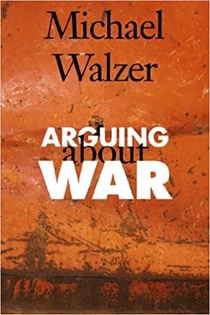
Arguing About War
A provocative discussion of recent wars and the issues that surround them, written by a preeminent political theoristMichael Walzer is one of the world’s most eminent philosophers on the subject of war and ethics. Now, for the first time since his classic Just and Unjust Wars was published almost three decades ago, this volume brings together his most provocative arguments about contemporary military conflicts and the ethical issues they raise.The essays in the book are divided into three sections. The first deals with issues such as humanitarian intervention, emergency ethics, and terrorism. The second consists of Walzer’s responses to particular wars, including the first Gulf War, Kosovo, Afghanistan, and Iraq. And the third presents an essay in which Walzer imagines a future in which war might play a less significant part in our lives. In his introduction, Walzer reveals how his thinking has changed over time.Written during a period of intense debate over the proper use of armed force, this book gets to the heart of difficult problems and argues persuasively for a moral perspective on war.
Ver todos
0
